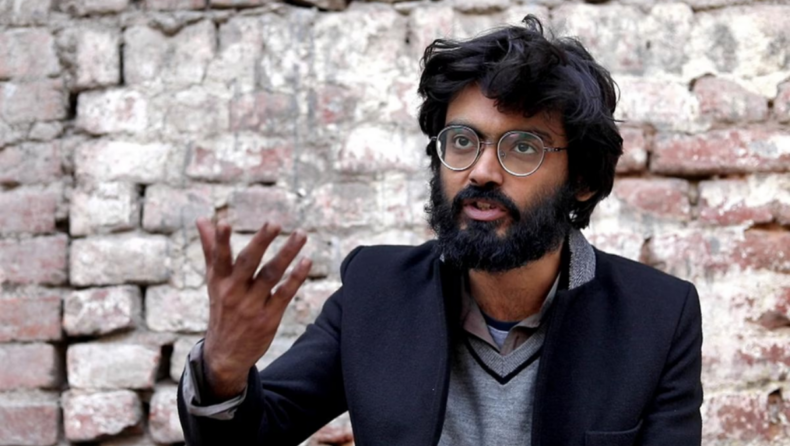Delhi Karkardooma Court denied the Bailapplication of former Jawaharlal Nehru University student Imam Sharjeel in a UAPA case related with the 2020 riots, which left 53 dead and 200 injured. The event dates back to when the Indian activist was imposed with defiance for presenting inflammatory speeches and encouraging people to act against the Citizenship Amendment Act and the National Register of Citizens .
Along with 17 other individuals, including student activists Umar Khalid, Natasha Narwal and Devangana Kalita, at Jamia Millia Islamia on December 13th, 2019 and subsequently on January 16th, 2020 at Aligarh Muslim University. During his speech, he supposedly threatened to “cut off” Assam and the rest of the North-eastern States from India.
The police mentioned in court that after his speech on December 13th, 2019, extensive arson and violence came into existence in various parts of the city, due to which several protest sites also emerged. He was filed under various sections, including 124-A (Sedition), 153 (A) (Promoting enmity), 153-A (promoting enmity, hatred between different communities), 153-B (Assertion prejudicial to national integration), and 505 (Spreading rumors) of the IPC and under the stringent Unlawful Activities (Prevention) Act.
The charge sheet said, “He is indicted of delivering seditious speeches and inciting a specific section of the community to engage in unlawful activities mischievous to the sovereignty and integrity of the nation,” according to the charge sheet. It further said, “In the garb of protesting against the Citizenship Amendment Act, he encouraged people of a particular community to block the roads leading to the major metropolis and resort to “Chakka Jam,” thereby dismembering normal life.”
Currently, the former research student has completed 2 years in prison. Advocate Tanveer Ahmed Mir advocated the bail plea for Imam, who contended that the allegation of conspiracy framed against Imam by the prosecution did not arise from his arrest but had happened before the violence that took place. Mir said, “We can’t have a situation where conspiracies become endless and suit a government case.” The law of conspiracies by the state has to be within boundaries and can’t be endless. ”
Objection to Sharjeel Imam’s bail plea
Amit Prasad opposed the bail plea and stated, “The arrest of Sharjeel Imam was not for conspiracy but seditious speech before his arrest. So to say the arrest was for conspiracy is a misdirected argument. Even if a conspiracy was detected and investigative agencies were able to prevent riots from happening, even then it would be termed a conspiracy. What is being argued is not in line with the factual positioning of this case.
” Prasad brought various events into the picture, which state the Imam’s involvement in the unlawful conspiracies, including his speech and conversations with Islamist groups in the run-up to the riots. He emphasized that several secret meetings were held that led to communal violence.
Conclusion
After hearing both sides of the arguments, Additional Sessions Judge Amitabh Rawat dismissed the bail plea of Sharjeel Imam. He said in his order, “Since there are reasonable grounds for believing that the allegations against the accused Sharjeel Imam are prima facie true, the proscription created by Section 43D of UAPA applies to the entitlement of bail to the accused and also the proscription contained in Section 437 CrPC.”













